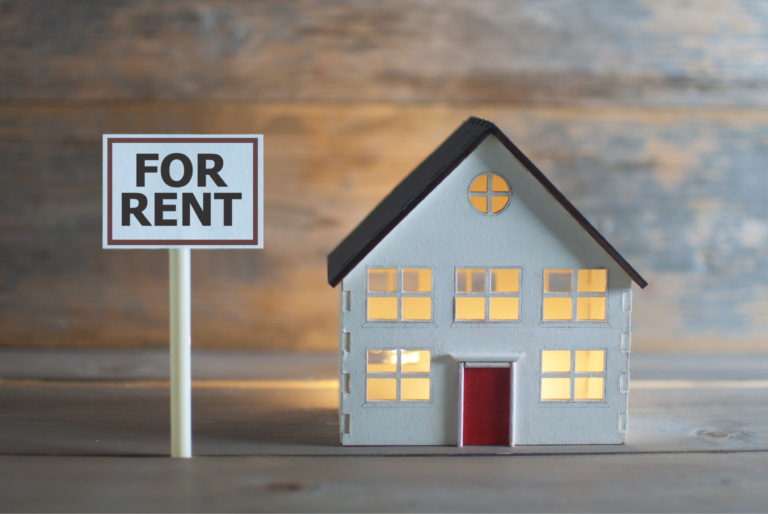Why has how to invest in rental property become such a popular search topic in 2025?
How to invest in rental property has become one of the most searched investment topics in 2025, as more people seek passive income streams and inflation hedges. Whether you’re looking to supplement your income or build long-term wealth, rental property investment offers proven strategies for financial growth when approached correctly. Real estate investing can seem overwhelming for beginners, but successful investors follow a systematic approach that removes much of the guesswork.
This guide walks you through every step of the rental property investment process, from initial planning to ongoing management, using strategies that have helped thousands of investors build profitable portfolios.
What are the fundamentals of rental property investment?
How to invest in rental property starts with understanding the three primary ways rental properties generate returns: monthly cash flow from rental income, long-term appreciation as property values increase, and significant tax advantages through deductions and depreciation.
Unlike stocks or bonds, rental properties provide tangible assets you can control and improve. You decide on renovations, tenant selection, and rent pricing, giving you direct influence over your investment’s performance. This control, combined with leverage through mortgages, allows you to purchase properties worth far more than your initial cash investment. The current market presents unique opportunities for new investors. While property prices have risen significantly, rental demand remains strong across most markets, particularly for single-family homes where 67% of landlords own SFRs and 32% plan to expand in 2025.
How do I assess my financial readiness for rental property investment?
Before exploring properties, conduct an honest financial assessment to determine your investment capacity. Most investment properties require 15-25% down payments, significantly higher than owner-occupied homes. For a $300,000 property, expect to invest $45,000-75,000 just for the down payment, plus closing costs and repairs. Maintain 3-6 months of property expenses in reserve beyond your personal emergency fund. This covers vacancy periods, major repairs, or economic downturns.
Many new investors underestimate this requirement and face financial stress when properties don’t immediately generate positive cash flow. Lenders scrutinize your debt-to-income ratio more strictly for investment properties. Ideally, maintain a DTI below 36% including the new property’s mortgage payment. Remember that lenders typically count only 75% of projected rental income when qualifying you for loans.
What are the main investment strategies for beginners?
There are three primary strategies for learning how to invest in rental property as a beginner.
House Hacking for Beginners: House hacking involves buying a multi-unit property, living in one unit, and renting out the others. You can qualify for owner-occupant financing with just 3-5% down, your tenants help cover the mortgage payment, and you gain hands-on landlord experience while building equity.
Single-Family Rental Properties: Single-family homes appeal to long-term tenants, particularly families seeking stability. These properties typically require less intensive management than multi-unit buildings and often appreciate more consistently. However, vacancy means 100% income loss until re-rented.
Multi-Family Properties: Buildings with 2-4 units offer income diversification – if one unit becomes vacant, others continue generating income. However, they typically require larger down payments and increased management responsibilities. If you live in Kirkland, learn more about different property types in our guide to Kirkland condo vs house investment strategies.
How do I analyze a rental property's financial performance?
Understanding key financial metrics separates successful investors from those who struggle when learning how to invest in rental property. The traditional 1% rule (monthly rent should equal 1% of purchase price) has evolved in today’s market. Properties meeting this rule are rare, but 0.7-0.8% can still work with proper analysis.
Cash Flow Analysis: Calculate monthly cash flow by subtracting all expenses from rental income: mortgage payment, property management fees (8-12% if outsourced), maintenance reserves (5-10% of rent), vacancy allowance (5-8% annually), and miscellaneous expenses.
Key Return Calculations: Cash-on-Cash Return (Annual cash flow ÷ total cash invested), Cap Rate (Net operating income ÷ purchase price), and Operating Expenses (Typically 40-50% of rental income).
How do I select the right market for rental property investment?
Market selection dramatically impacts your investment success when learning how to invest in rental property. Focus on markets with job growth, economic diversification, and population increases. Cities like Raleigh, Nashville, Austin, and Charlotte remain magnets for skilled workers and remote professionals. Research neighborhood-specific factors including school districts, crime rates, transportation access, and future development plans. Properties near employment centers, good schools, or public transportation typically maintain stronger rental demand.
For market-specific insights, explore our Eastside neighborhood rental demand analysis and learn about identifying emerging markets in our comprehensive rental market analysis guide.
What financing options are available for investment properties?
Investment property financing differs significantly from primary residence mortgages when you’re learning how to invest in rental property. Conventional investment loans require 15-25% down payments with interest rates typically 0.5-1% higher than owner-occupied properties. Expect stricter qualification requirements including higher credit scores (typically 720+) and larger cash reserves. With investment property rates at 7-8% in 2025, cash flow calculations require careful analysis. Higher rates mean lower cash flow, making property selection and market timing more critical than in previous low-rate environments. Creative financing options include leveraging home equity, seller financing, and hard money loans for investors with non-traditional situations.
For detailed financing guidance, contact SJA Property Management for our free consultation to discuss your specific financing needs.
Should I manage my rental property myself or hire a professional?
Effective property management determines your investment’s long-term success when you invest in rental property. Self-management works best with 1-5 properties located within 30 minutes of your home. You’ll handle tenant screening, rent collection, maintenance coordination, and legal compliance. Professional managers typically charge 8-12% of monthly rent but provide comprehensive services including tenant screening, maintenance coordination, and legal compliance. This often prevents costly mistakes and saves time. Learn when professional management makes sense in our article about DIY vs professional property management costs. Modern property management requires sophisticated tools for tenant screening, rent collection, and financial reporting.
Discover the essential tools in our guide to technology tools for modern landlords. At SJA Property Management, we offer comprehensive property management services with our 8 client guarantees to ensure your investment success.
What legal and tax considerations should I know about?
Rental properties offer substantial tax benefits when you invest in rental property, including mortgage interest deductions, property tax deductions, repairs and maintenance expenses, and depreciation allowances. These deductions often eliminate taxable income from rental properties, creating tax-efficient wealth building.
For comprehensive guidance on maximizing these benefits, read our detailed article on rental property tax deductions. Landlord-tenant laws vary significantly by state and locality. Key areas include fair housing compliance, security deposit regulations, and eviction procedures. Non-compliance can result in costly lawsuits and penalties. Understanding these legal requirements is crucial for successful property management and protecting your investment.
What common mistakes should beginners avoid?
The most common mistake beginners make when learning how to invest in rental property is miscalculating expenses. Rent should cover all expenses including mortgage, taxes, insurance, maintenance, and vacancy reserves. Underestimating expenses leads to negative cash flow and financial stress. Avoid rushing into purchases without proper property inspections, market analysis, or financial calculations. Successful investors systematically evaluate every aspect before making offers. Maintain adequate reserves for unexpected expenses and future opportunities. Many new investors exhaust their cash buying the first property, leaving nothing for repairs or additional investments.
Watch our SJA Property Management video on common rental property investment mistakes to learn how to avoid these costly errors.
What team do I need to build for successful rental property investing?
Successful rental property investing requires a team including a real estate agent specializing in investment properties, experienced investment property lender, accountant knowledgeable in rental property taxation, attorney familiar with landlord-tenant law, and reliable contractors for maintenance and improvements. Building relationships with these professionals saves time and reduces costly mistakes when you invest in rental property.
At SJA Property Management, we can connect you with trusted professionals in our network and provide expert guidance throughout your investment journey. Take advantage of our free rental analysis to get professional insights on potential investment properties.
How do I get started with my first rental property investment?
Your first rental doesn’t need to be perfect when you’re learning how to invest in rental property – start with a solid deal, learn the process, and scale from there. Focus on finding a property that cash flows in a stable market rather than pursuing the “perfect” deal. Begin with financing pre-approval to understand borrowing capacity and qualification requirements. Develop systematic property evaluation procedures including financial analysis, property inspections, and rental potential assessment.
Start by researching your local market conditions, attending real estate investment meetups, and educating yourself through resources like our complete library of rental property guides and our SJA Property Management YouTube channel.
Get Expert Guidance for Your Rental Property Investment Journey
SJA Property Management Services:
- Expert market analysis and property selection guidance
- Comprehensive property management with our 8 client guarantees
- Professional tenant screening and placement
- Maintenance coordination and emergency response
- Financial reporting and investment performance tracking
- Tax optimization and expense management support
Ready to Start Your Investment Journey?
Take advantage of our complimentary services to launch your rental property investment success:
- Free Rental Analysis: Get professional evaluation of potential investment properties and market opportunities
- Free Consultation: Discuss your investment goals with our experienced team
- 8 Client Guarantees: Invest with confidence knowing we stand behind our services
Take Action and Start Building Wealth
The key to success in learning how to invest in rental property lies in thorough preparation, objective analysis, and conservative financial planning. Start with solid fundamentals, learn from each property, and gradually scale your portfolio as your experience and confidence grow.
Market conditions in 2025 present both opportunities and challenges. Higher interest rates require more careful cash flow analysis, but strong rental demand in many markets continues supporting rental property investment as a viable wealth-building strategy.
For ongoing education and market insights, subscribe to our SJA Property Management YouTube channel and explore our complete library of property management and investment resources.
Remember that successful real estate investing is a marathon, not a sprint. Take time to educate yourself, build your team, and make informed decisions. Whether you choose to self-manage or work with professionals like SJA Property Management, understanding these fundamentals will set you up for long-term success in rental property investing.






